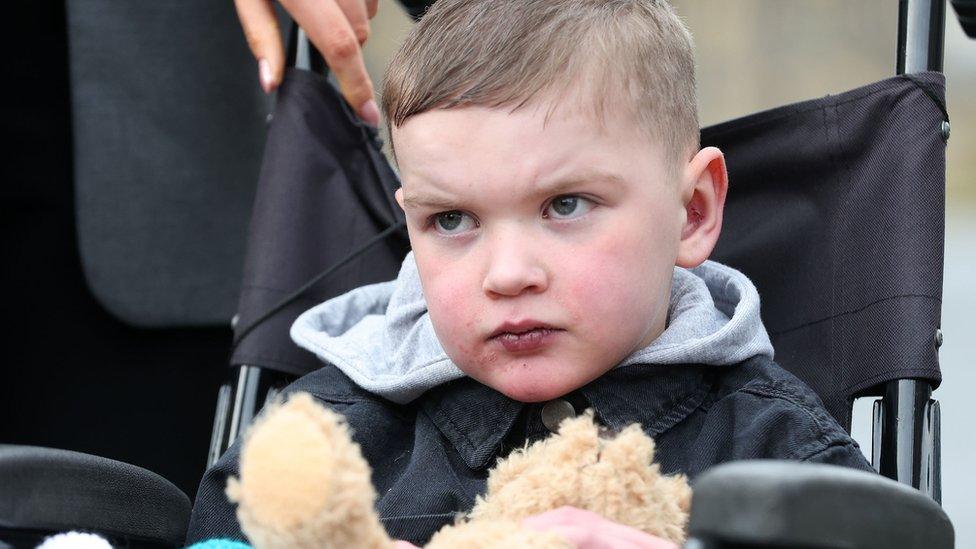Dáithí's Law: Rishi Sunak honours Belfast boy over organ donation
- Published
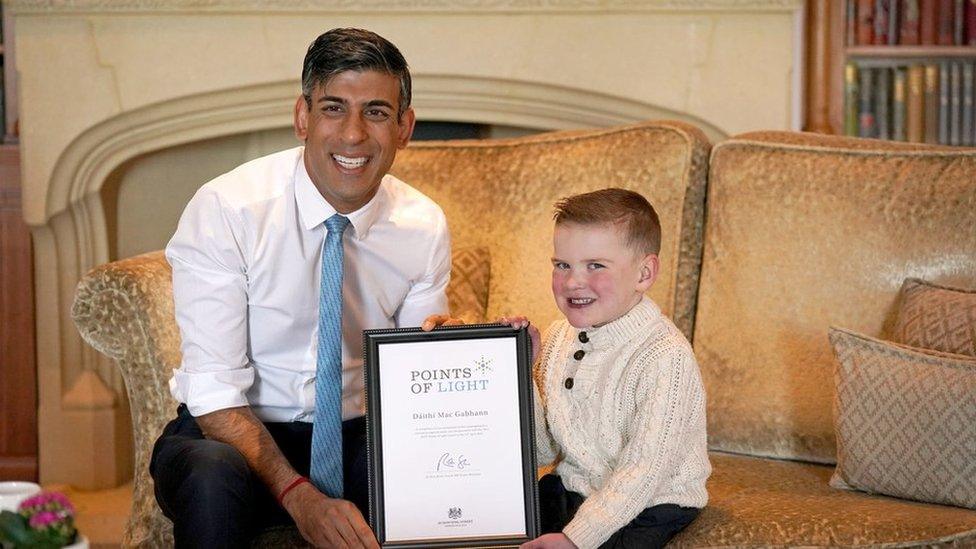
Points of Light award recognises people who are contributing to their community
Prime Minister Rishi Sunak has presented six-year-old Dáithí Mac Gabhann with an award for his campaign to reform organ donation in NI.
Dáithí has been on the list to get a heart transplant for about five years.
The new law, known as Dáithí's Law, which takes effect from June, will consider most adults as potential organ donors unless they opt out.
The Points of Light award recognises people who are contributing to their community.
The law had been delayed due to the political stalemate at Stormont. However, the government then stepped in to ensure it could take effect.
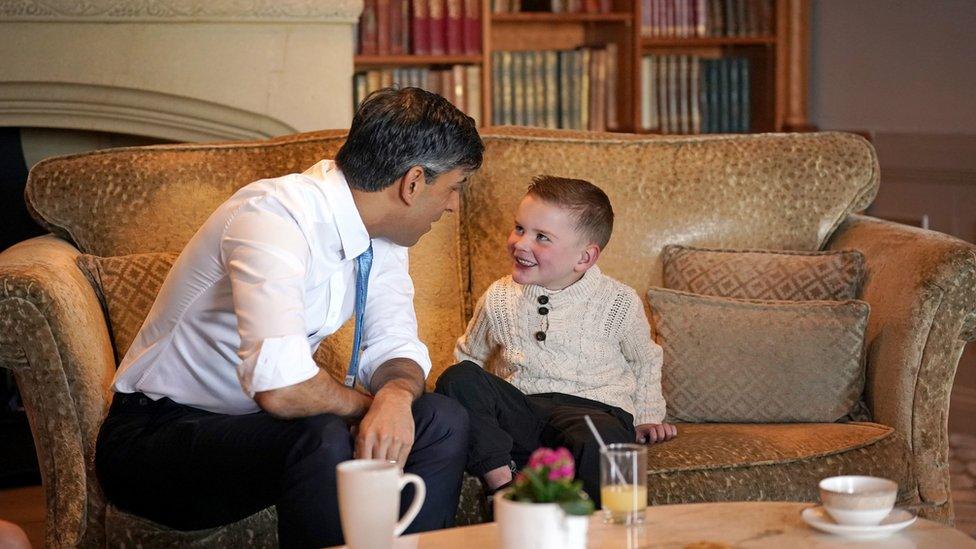
In a tweet, the prime minister said Dáithí's Law "will save lives".
"One of the joys of my job is being able to meet some exceptional people - just like Dáithí Mac Gabhann," he said.
Allow X content?
This article contains content provided by X. We ask for your permission before anything is loaded, as they may be using cookies and other technologies. You may want to read X’s cookie policy, external and privacy policy, external before accepting. To view this content choose ‘accept and continue’.
In an earlier letter to Dáithí, the prime minister said the six-year-old was "helping others in your situation to get the life-changing help they need - it is a huge achievement.
"In your father's words: 'Exceptional things happen for exceptional people'. I agree with him that you are truly exceptional and so I am delighted to recognise your courage by naming you as the UK's 2029th Point of Light.
"The whole country is with you as you continue your treatment."
Mr Sunak met Dáithí and his family while in Belfast to mark the 25th anniversary of the Good Friday Agreement and President Joe Biden's visit.

What is Dáithí's Law?

Northern Ireland is the only part of the UK where an opt-out organ donation system is not in place.
Dáithí's Law was introduced in the Stormont assembly in 2021 and passed its final stage in February 2022.
It would mean all adults in Northern Ireland would be considered a potential organ donor after their death unless they specifically stated otherwise.
But last month it emerged that additional legislation was needed to specify which organs and tissues were covered under the opt-out system.
Read more: What is Dáithí's Law?

- Published22 February 2023
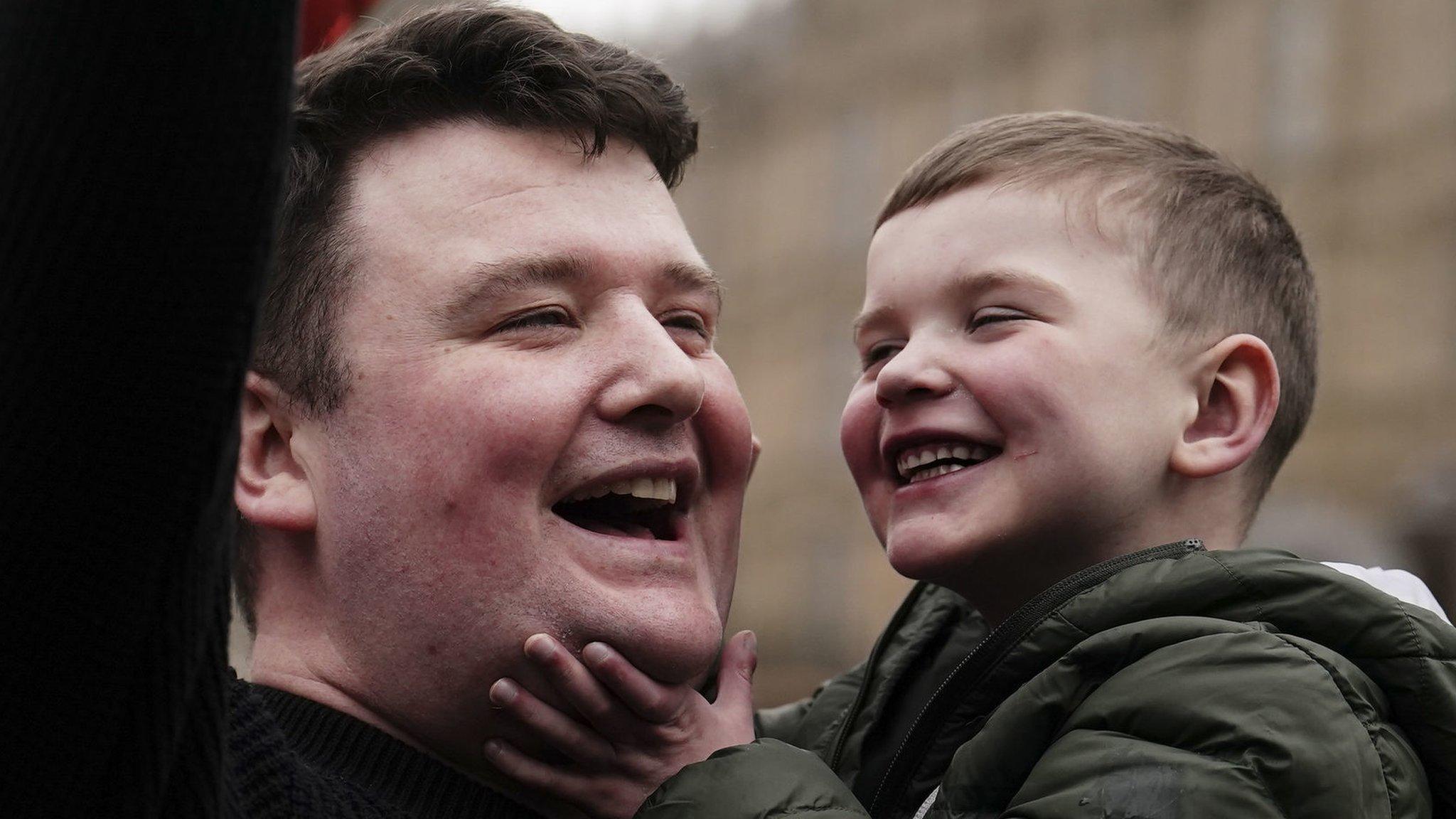
- Published20 February 2023

- Published14 February 2023
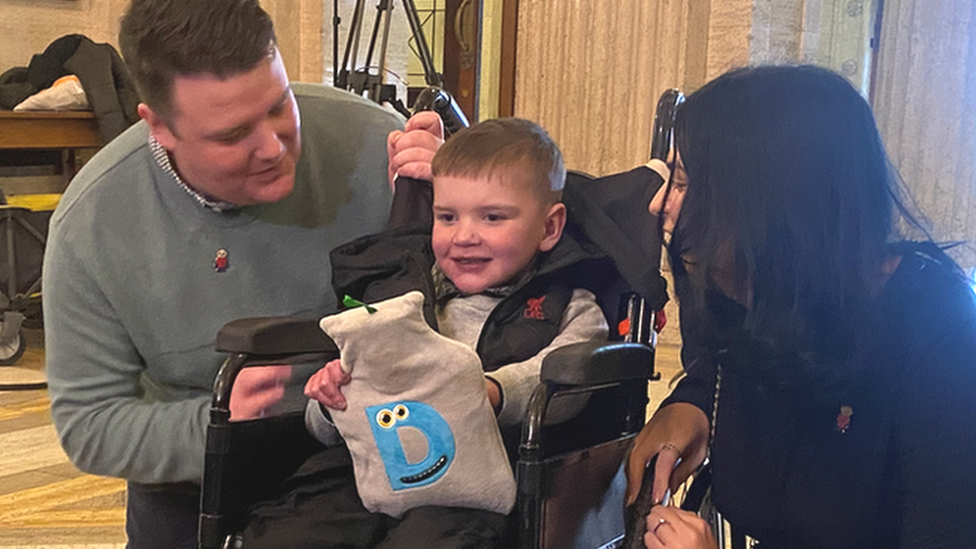
- Published13 February 2023
